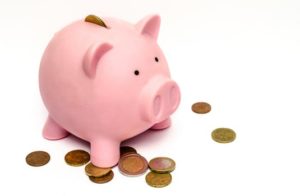Focus on the debt with the highest interest rate.
A good way to start chipping away at your debt is to first focus on the highest rate. When you are organizing your debts, try to put them in order from the highest interest rate to the lowest rate. Put more money towards the highest while also making the minimum monthly payments on all your other debts. Once it is paid off, you move to the next highest, and so on. This method gets rid of large interest charges so you won’t get overwhelmed.
Focus on the debt with the smallest balance.
This is similar to the first method but you attack the debts with the smallest balances first. The idea here is that each time you pay an account off, even if it is small, you can cross it over your list of debts and move on to the next one with the feeling that progress is being made. The sense of accomplishment from paying off a debt will hopefully motivate you to pay off the next one.
Pay by the closing date, not the payment due date.
If you pay off your balance before the closing date (which you can find on your statement) your statement will show a zero balance, which is what goes to the credit bureaus. Doing this allows you to avoid interest charges and can also improve your credit score.
Create a budget and downsize.
Track your expenses monthly and try to cut out any seemingly unnecessary purchases. We all have some luxuries we could be going without. There are many online tools/apps to help you create a budget based on your income. If you need a little more restraint, the envelope method would be most helpful. This method is simply allocating a specific amount of cash to every part of your life that requires money (groceries, entertainment, gas, etc), putting each in their own dedicated envelope.
 Build an emergency fund.
Build an emergency fund.
Start saving money however and whenever you can, an app like Acorns helps by rounding your debit card purchases up to the nearest dollar and saving the differences. The small amounts really start to add up. If you have direct deposit, you can also designate a small portion of each paycheck to your savings, which can help if you’re usually inclined to spend any extra money. Even $500 can help so you don’t start to accrue more debt when unexpected expenses hit.
Transfer balances.
If you are suffering from a high interest rate, consider opening a balance-transfer credit card. Transferring to a balance-transfer card with a 0% APR can help chip away at the debt without having to pay large interest charges. Some cards offer 0% APR for up to 15 billing cycles and $0 balance transfer fees, just be sure to pay off your balance before the promo is up.

 Build an emergency fund.
Build an emergency fund.